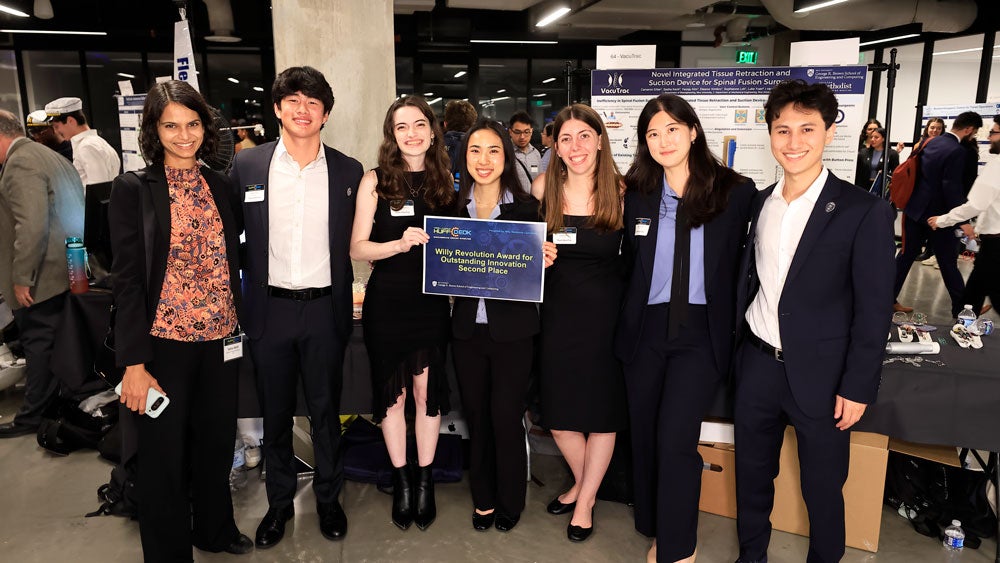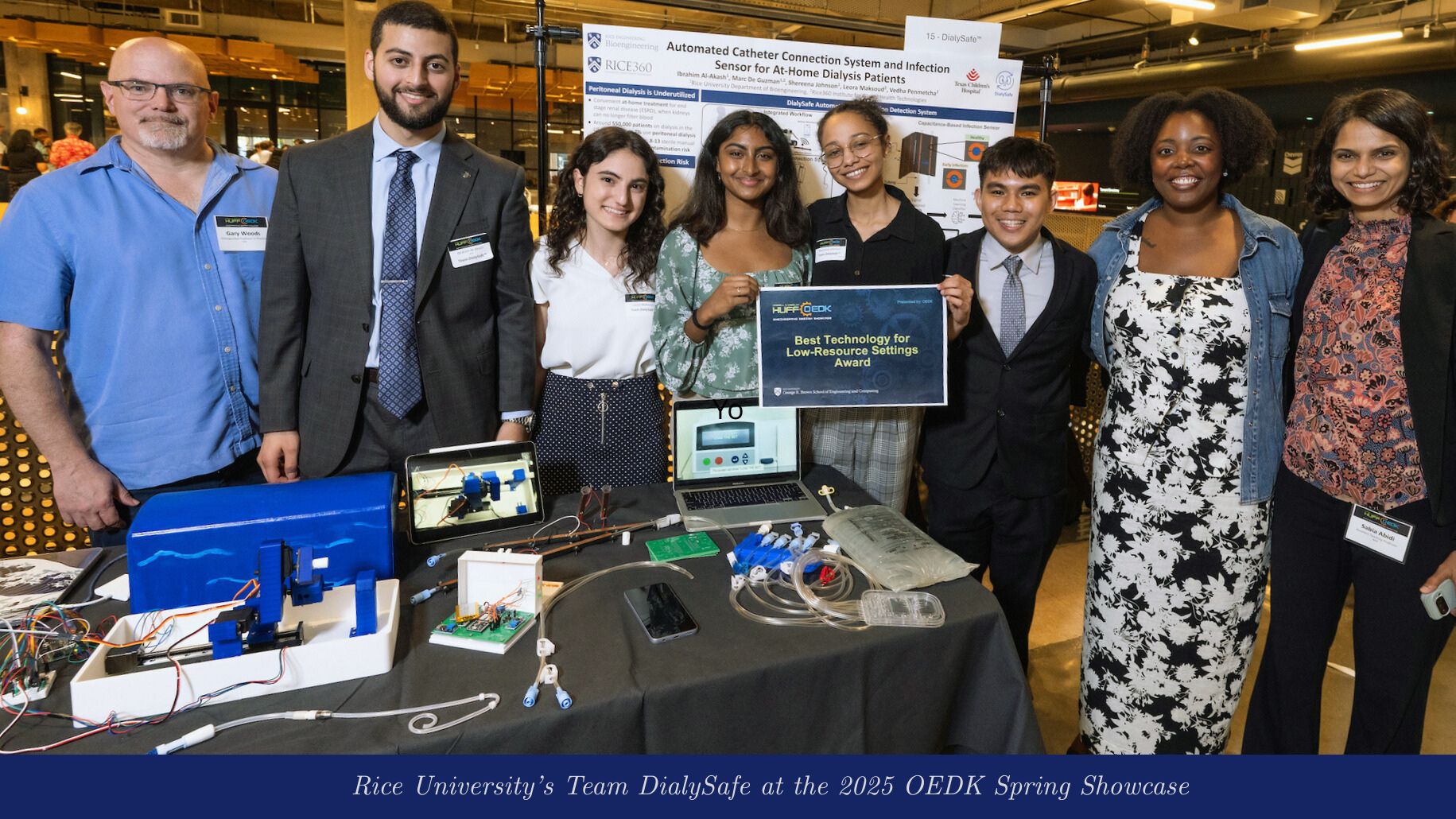Each year, the the National Institutes of Health (NIH)'s National Institute of Biomedical Imaging and Bioengineering (NIBIB) and VentureWell organize the 2025 Design by Biomedical Undergraduate Teams (DEBUT) Team Challenge for student teams across the nation to develop technology solutions for unmet needs in any area of healthcare. Eight NIH agency partners also sponsor additional prizes in their domain of research. This year's DEBUT Challenge had a record number of participants—with 123 teams consisting of 534 students representing 67 universities across the United States.
Two Rice undergraduate teams—DialySafeTM and VacuTrac—won awards at the 2025 DEBUT challenge.
"It is truly rewarding for these students to be recognized for their work,” said their lead mentor, Sabia Abidi, assistant teaching professor and director of Bioengineering Undergraduate Studies. “Both teams persevered throughout the year despite the size of the challenge. Their ability to prioritize the human experience was critical in their success. Last year, a Rice bioengineering team (UroFlo) won the Grand Prize in this competition, making this year's multiple wins from Rice more special.”
Team DialySafeTM won the $15,000 NIDDK Kidney Technology Development Prize, sponsored by the National Institutes of Diabetes and Digestive and Kidney Diseases, for developing a device that helps prevent and rapidly detect infections in dialysis patients with end-stage kidney disease.
Peritoneal dialysis remains underutilized among patients with end-stage renal disease due to risks of life-threatening infections. To address this, the Rice undergraduate team developed DialySafe TM, an innovative accessory designed to improve existing peritoneal dialysis equipment for pediatric patients. This device automates key steps to reduce touch contamination, the leading cause of such infections, and integrates a noninvasive detection system. Using a capacitance-based sensor, the device identifies the presence of white blood cells in waste fluid as an early indicator of infections. An integrated alert mechanism and mobile app further improve safety and ease of use for patients and their caregivers.
Rice undergraduate students, Ibrahim Al-Akash, Marc De Guzman, Shereena Johnson, Leora Maksoud, and Vedha Penmetcha comprised this student team. The Rice faculty mentors for the project were Sabia Abidi, Kiara Lee, director of Education Strategy, and Gary Woods, distinguished professor in the practice, electrical and computer engineering, who also served as an electrical engineering advisor. Dr. Sameer Thadani and Dr. Catherine Joseph from Texas Children's Hospital served as clinical mentors for the project. Watch this video to see how DialySafeTM works.

Team VacuTrac received an Honorable Mention for developing an integrated tissue retraction and suction device for spinal surgery. Every year over 300,000 spinal fusion surgeries are performed to treat scoliosis, degenerative disk disease and spinal stenosis in the United States alone. The spinal dissection phase of the surgery is laborious and time-consuming and currently requires two surgeons because it relies on three handheld tools: a cautery device; a Cobb elevator; and a suction device. The device designed by Team VacuTrac integrates a deployable suction tip directly into a traditional Cobb elevator, allowing a single surgeon to perform tissue retraction and fluid removal simultaneously, eliminating the need for multiple instruments and operators.
Rice undergraduate students Sasha Keck, Cameron Erber, Yeonju Kim, Eleanor Kimbro, Sophianne Loh, and Luke Yuen comprised this student team. Sabia Abidi was the lead faculty mentor for this project. David Trevas, mechanical engineering lecturer, and Gary Woods, distinguished professor in the practice of electrical and computer engineering, provided advising support, and Dr. Holman served as the clinical mentor. Watch this video to see how VacuTrac works.

